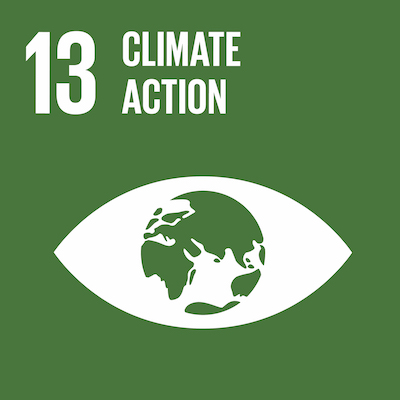The Science Council of Japan made the very interesting exercise of classifying the resolutions it adopted in the period 2014-2017 according to the SDGs. Let’s have a look at SDG12 and SDG13.
Previous post on the same topic.
 SDG12: Responsible consumption and production
SDG12: Responsible consumption and production
Necessity of research on ecological and health effects of water pollution by microplastics and plastic governance
The worldwide plastic pollution of the ocean is the origin of microplastics that carry hazardous chemicals and is incompatible with a sustainable society. In order to achieve goals of “Transforming our world: the 2030 Agenda for Sustainable Development Goals (SDGs)” such as 11 “Sustainable cities and communities”, 12 “Responsible consumption, production”, 13 “Climate action”, 14 “Life below water” and 15 “Life on land”, it is necessary for the government, private sector, academia, and companies to work together urgently.
A proposal for a reliable recovery action on the data falsification problem of base isolation and vibration control dampers
After the devastating earthquake disasters in Kobe, Japan in 1995, base isolation and the dynamic control technology were applied in more buildings and bridges. However, data falsification problems of base isolation devices and vibration control dampers appeared. This problem seems to have occurred because performance checks and quality control of the product were left to the manufacturing companies’ own inspection processes.
The following reliable recovery actions to prevent any incidents are proposed to make stronger, more resilient structures and society:
- Third-party sampling inspection should be required to avoid data falsification and ensure structural safety.
- Dynamic loading test apparatus for full-scale devices should be introduced to comply with global standards.
- A jointly owned, designated inspection agency with a large-scale dynamic testing facility should be established to perform the unbiased third-party sampling tests.
For our future without excessive expectation and misunderstanding technology: toward the future we want with automated driving – understanding the current situation, seen from academia
Although expectations for automated driving are increasing, negative aspects such as traffic accidents have not yet been solved. This problem will be more serious in the aging society. We need to understand properly the current state of automated driving technically and legally from the perspectives of both consumption and production. JSC recommended a new system of industry, government, and academia collaboration from a long-term perspective.
Realization of Society 5.0 supported by science and technology created together with society: recommendations on biomaterials research supporting medical care
It is necessary to facilitate biomaterials research, which plays a key role in realizing smart medical care in Society 5.0. Here, JSC made proposals on the establishment of novel educational systems and the human resource development that can implement innovative ways of thinking into each individuals to lead basic research and practical applications in the global field of biomaterials.
 SDG13: Climate action
SDG13: Climate action
Necessity of research on ecological and health effects of water pollution by microplastics and plastic governance
The worldwide plastic pollution of the ocean is the origin of microplastics that carry hazardous chemicals and is incompatible with a sustainable society. In order to achieve goals of “Transforming our world: the 2030 Agenda for Sustainable Development Goals (SDGs)” such as 11 “Sustainable cities and communities”, 12 “Responsible consumption, production”, 13 “Climate action”, 14 “Life below water” and 15 “Life on land”, it is necessary for the government, private sector, academia, and companies to work together urgently.
Linkage of climate change measures with aging society measures: path to urban and architecture with low carbon and healthy lifestyle
Reducing CO2 emissions for climate change and global warming countermeasures is a serious obligation for those involved in cities, buildings, and transportation. In Japan, the railroad system was established during the economic growth period of the Showa era and its population inflows into the city. It was once honorable in the world in terms of CO2 emissions, but now we need a new policy to shift to a super aging society. Recognizing the problem that elderly people and children need places where they can rest and relax, and that we have to realize further lower carbonization of traffic in small and medium cities, SCJ propose four concrete items.
Adaptation measures needed for large-scale storm and flood damage: promotion of scientific and technological research that responds to new developments of large-scale storm and flood disaster adaptation measures – responding to actual needs with the progress of social implementation
In promoting large-scale storm and flood disaster adaptation measures, JSC made a recommendation based on two key factors:
- that knowledge is the foundation of grasping issues and examining solutions.
- that technology to support these solutions are required.
JSC appeals for two kinds of support:
- support for cooperative activities by grasping on-site needs.
- support for maintenance and development of organized cooperation system.
JSC wants to help the community become “sound and active”, by using the word “resilience” (the ability of society to endure the influence of external environmental change and to reconstruct).








